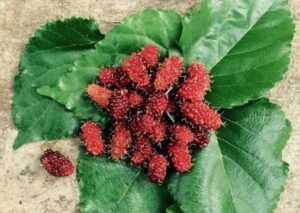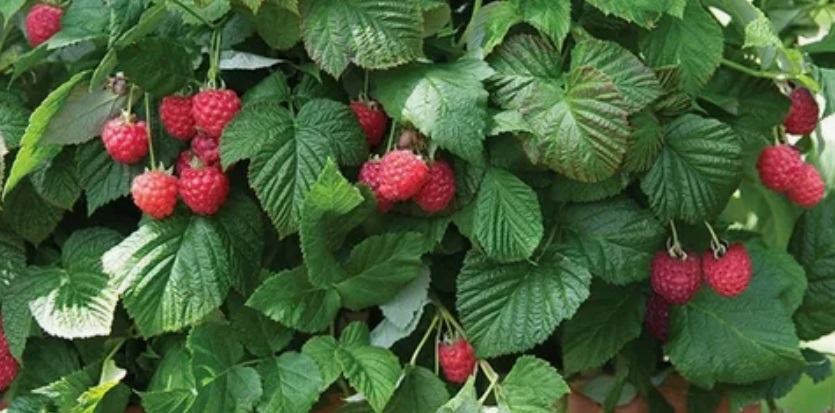What is Mulberry Benefits Health Cures and Where Does It Grow?
What is Mulberry and Where Does It Grow? Mulberry, scientifically recognized as the *Morus* genus, refers to a group of fast-growing deciduous trees or shrubs that bear sweet, flavorful, and nutrient-packed fruit. Native to warm and temperate regions of Asia, Europe, and the Americas, mulberries have thrived for centuries as a vital resource due to their versatility and nutritional benefits. The three most common species are white mulberry (*Morus alba*), black mulberry (*Morus nigra*), and red mulberry (*Morus rubra*), which are widely cultivated in different parts of the world.
White mulberries originated in China and are famously linked to the silk industry due to their role as the sole food source for silkworms (*Bombyx mori*), while black mulberries trace their roots to Southwestern Asia. Red mulberries are native to the eastern United States and have long been a part of the indigenous food and medicinal culture. Today, these trees are widely cultivated in regions like India, Turkey, China, the United States, and parts of Europe, flourishing in rich and well-drained soils where there is ample sunlight.
**What Are the Benefits of Mulberries?**
Mulberries are considered a ‘superfood’ due to their remarkable nutritional profile and health benefits. Packed with essential vitamins (such as Vitamin C, Vitamin K, and B-complex vitamins), minerals (like iron, potassium, magnesium, and calcium), and antioxidants, mulberries are a powerhouse for overall wellbeing. These benefits include:
1. **Rich in Antioxidants**: Mulberries are loaded with anthocyanins and resveratrol, potent antioxidants that protect against oxidative stress and reduce the risk of chronic diseases like cancer, heart disease, and neurodegenerative disorders.
2. **Supports Immune Function**: Thanks to their high Vitamin C content, mulberries bolster the immune system and help protect against infections.
3. **Improves Digestive Health**: Mulberries are an excellent source of dietary fiber, aiding in digestion, promoting regular bowel movements, and relieving constipation.
4. **Promotes Cardiovascular Health**: Mulberries are known to regulate cholesterol levels, improve blood flow, and reduce high blood pressure, decreasing the risk of heart-related conditions.
5. **Manage Blood Sugar Levels**: Compounds in mulberries, particularly 1-deoxynojirimycin (DNJ), help lower blood sugar levels by slowing carbohydrate digestion, making them beneficial for diabetics.
6. **Supports Bone Health**: With their calcium, magnesium, and Vitamin K content, mulberries strengthen bones and reduce the risk of osteoporosis.
7. **Boosts Cognitive Function**: Mulberries are shown to improve memory, protect brain cells, and combat the onset of neurodegenerative conditions like Alzheimer’s.
**Where and How Can We Use Mulberries?**
Mulberries can be consumed fresh off the tree, but their versatility makes them a popular ingredient in a wide array of culinary and medicinal applications. Here are some common uses:
1. **In Food**: Fresh or dried, mulberries can be added to smoothies, breakfast cereals, salads, and desserts for a sweet-tart flavor burst. They are also used in making jams, jellies, syrups, pies, wine, and tea. Mulberry leaves are used to make herbal teas, especially for their health-promoting properties.
2. **In Traditional Medicine**: Mulberry fruit, leaves, and root bark are frequently utilized in alternative medicine systems like Traditional Chinese Medicine (TCM) and Ayurveda for treating a variety of conditions, including anemia, premature greying of hair, and liver issues.
3. **In Skincare**: Mulberry extracts are used in cosmetic products for their skin-lightening and anti-aging properties. They help reduce pigmentation, sunspots, and wrinkles while promoting overall skin health.
4. **As an Animal Feed**: Beyond humans, mulberry leaves serve as the primary feed for silkworms and a nutritious fodder for livestock.
**What Are the Health Cures of Mulberries?**
Mulberries and their derivatives (leaves, fruit, and roots) have been used for centuries for their medicinal properties, addressing a wide range of health concerns:
1. **Respiratory Relief**: Mulberry syrups and teas are popular home remedies for soothing sore throats, coughs, and colds.
2. **Diabetes Management**: Mulberry leaves contain compounds that effectively regulate blood sugar levels. Consuming mulberry leaf tea or extracts can be an excellent natural remedy for managing type-2 diabetes.
3. **Anemia Treatment**: The fruit’s high iron content helps combat anemia by improving hemoglobin levels and promoting adequate oxygen circulation in the body.
4. **Liver Detoxification**: Mulberries are believed to have liver-protective properties that aid in detoxifying the body and improving liver function.
5. **Weight Loss Aid**: With their fiber and low-calorie content, mulberries promote satiety, making them ideal for snacking when on a weight loss journey.
6. **Eye Health**: Rich in Vitamin A, mulberries protect vision and reduce the risk of eye disorders like macular degeneration and cataracts.
7. **Skin and Hair Care**: Regular consumption of mulberries is associated with glowing skin and healthier hair. Traditional remedies also use mulberries to combat premature greying and stimulate hair growth.

Beyond the Berry: Unleashing the Delicious Potential of Mulberries and Their Health Benefits
Mulberries, those sweet-tart jewels hanging heavy on branches in late spring and early summer, are often overlooked. Snapped up by birds and staining fingers purple, these delicate berries are far more than just a fleeting treat. They are a versatile ingredient bursting with flavor and packed with health benefits, making them a worthwhile addition to your culinary and well-being arsenal.
**Practical Dishes with Mulberry: A Culinary Canvas**
Mulberries are surprisingly adaptable, lending their unique flavor profile to a wide range of dishes. Here’s a glimpse into the possibilities:
* **Jams, Jellies, and Preserves:** This is perhaps the most classic application. Mulberries have a high pectin content, making them naturally suited for creating vibrant and flavorful spreads. Their slightly tart nature balances the sweetness beautifully.
* **Pies and Crumbles:** Ditch the usual suspects and try a mulberry pie or crumble. Their intense color and distinctive flavor add a delightful twist to these comforting desserts. Pair them with rhubarb or apples for a more complex taste.
* **Smoothies and Juices:** Throw a handful of fresh or frozen mulberries into your morning smoothie for a boost of antioxidants and a burst of sweetness. Blend them into juice for a refreshing and hydrating drink.
* **Salads:** Surprisingly delicious! Add fresh mulberries to your salads for a touch of sweetness and a pop of color. They pair particularly well with goat cheese, walnuts, and balsamic vinaigrette.
* **Sauces and Glazes:** Simmer mulberries with sugar, vinegar, and spices to create a delicious sauce for grilled meats, particularly pork or duck. The slightly tart flavor cuts through the richness of the meat, creating a balanced and flavorful dish.
* **Baked Goods:** Incorporate mulberries into muffins, scones, or even bread for a touch of sweetness and a boost of nutrients. They add moisture and a unique flavor dimension to your favorite baked goods.
* **Ice Cream and Sorbet:** Homemade mulberry ice cream or sorbet is a refreshing and decadent treat. The intense color and fruity flavor make it a visually appealing and delicious dessert.
**For Which Dishes Can Mulberries Be Preferred?**
Mulberries shine in dishes where their unique characteristics can truly stand out:
* **Dishes that need a touch of sweetness and tartness:** Their balanced flavor profile makes them ideal for dishes that benefit from both sweetness and tartness, like sauces, glazes, and jams.
* **Dishes that need a pop of color and visual appeal:** The deep purple color of mulberries adds a beautiful visual element to any dish.
* **Dishes that are already rich or heavy:** The tartness of mulberries can help to cut through richness and balance out heavier dishes, like grilled meats or creamy desserts.
* **Dishes where you want to add nutritional value:** Mulberries are packed with vitamins, minerals, and antioxidants, making them a healthy addition to any meal.
**Health Benefits of Mulberries: A Nutritional Powerhouse**
Beyond their delicious taste, mulberries offer a wealth of health benefits:
* **Rich in Antioxidants:** Mulberries are packed with antioxidants, including anthocyanins, which help protect the body against damage from free radicals. This can contribute to a reduced risk of chronic diseases like heart disease and cancer.
* **Boosts Immunity:** They contain vitamin C and other immune-boosting compounds, helping to strengthen the body’s defenses against infections.
* **Supports Heart Health:** Studies suggest that mulberries may help lower cholesterol levels and improve blood vessel function, promoting a healthy cardiovascular system.
* **Regulates Blood Sugar:** Some research indicates that mulberries may help regulate blood sugar levels, making them potentially beneficial for individuals with diabetes or pre-diabetes.
* **Promotes Healthy Digestion:** They are a good source of dietary fiber, which aids in digestion and promotes gut health.
* **May Improve Vision:** Certain antioxidants found in mulberries, such as zeaxanthin, are linked to improved eye health and a reduced risk of age-related macular degeneration.
**Mulberry for Cold and Flu Relief: A Natural Remedy?**
While mulberries shouldn’t be considered a cure-all for colds and flu, their nutritional profile and specific properties can offer some relief and support the body’s natural healing process:
* **Vitamin C Boost:** The vitamin C content can help strengthen the immune system and shorten the duration of a cold.
* **Anti-Inflammatory Properties:** Compounds in mulberries may help reduce inflammation associated with cold and flu symptoms, like sore throats and congestion.
* **Soothing Sore Throats:** A warm tea made with mulberry leaves or berries can help soothe a sore throat.
* **Antiviral Potential:** Some studies suggest that mulberry extracts may have antiviral properties, potentially helping to fight off viral infections.
**Important Note:** Consult a healthcare professional for proper diagnosis and treatment of colds and flu. Mulberries can be a helpful addition to a healthy diet and lifestyle, but they should not replace conventional medical care.
**How to Incorporate Mulberries into Your Cold & Flu Relief Routine:**
* **Mulberry Tea:** Steep fresh or dried mulberry leaves in hot water for a soothing and immune-boosting tea. Add honey and lemon for extra comfort.
* **Mulberry Smoothie:** Blend mulberries with other immune-boosting ingredients like ginger, lemon, and honey for a revitalizing smoothie.
* **Mulberry Juice:** Drink fresh mulberry juice for a concentrated dose of vitamins and antioxidants.
**Conclusion:**
Mulberries are a versatile and nutritious fruit with a wide range of culinary and health benefits. From delicious jams and pies to immune-boosting smoothies and teas, incorporating these humble berries into your diet can add a burst of flavor, color, and vitality to your life. While not a cure-all, their properties can offer some relief and support during cold and flu season. So, the next time you see those vibrant purple berries hanging on the branches, don’t just let the birds have all the fun. Embrace the delicious potential of mulberries and reap the rewards of this often-overlooked nutritional powerhouse.
Mulberries are not just a delicious and nutrient-rich fruit; they are a natural remedy with the potential to treat and prevent numerous health conditions. Whether consumed fresh, dried, or as part of herbal teas and skincare products, mulberries offer a wealth of benefits that make them a valuable addition to any diet. Their widespread availability and medicinal value ensure that mulberries continue to have a lasting impact on human health and wellness across the globe. Whether you’re looking for a tasty treat, a natural health cure, or a way to enhance your beauty regimen, mulberries are a one-stop solution!
You can read below writings
what is green tea and where does it grow
Guide to Black Tea: Origins, Benefits, Uses
Nature’s Calming and Healing Wonder Linden






